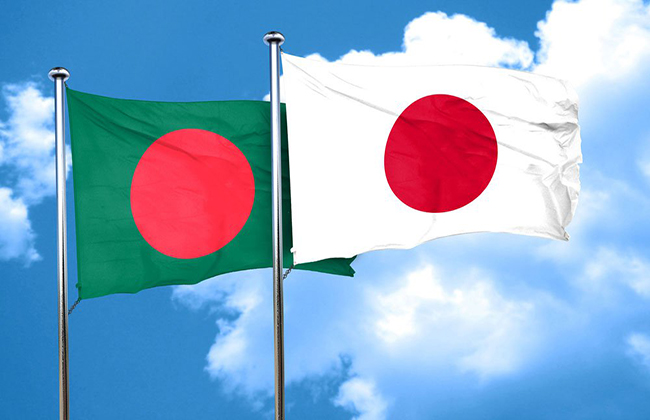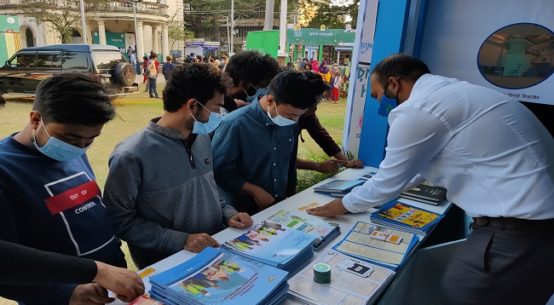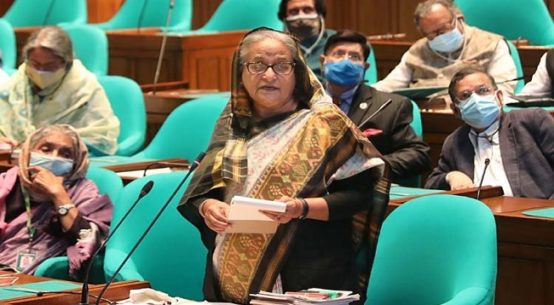
Speakers at a JICA seminar opined that the Japanese model of development might be the best pathway for Bangladesh in achieving economic goals and turning itself into a developed country.
Japan’s experience in developing the country from the ashes of World War II can be replicated in a customized version suitable for Bangladesh, they said.
Despite the deadlock of the global economy due to the COVID-19 pandemic, Bangladesh’s economy may transform into an ‘economic miracle’ by adopting the model of Japanese development accommodating the policy learning in the desired tailored version while attaining cherished economic growth, the speakers observed.
Dr. Md. Akhtaruzzaman, Vice Chancellor, University of Dhaka, joined the seminar as the chief guest.
Ito Naoki, Ambassador of Japan to Bangladesh joined as special guest.
Yuho Hayakawa, Chief Representative, JICA Bangladesh Office, delivered the welcome speech.
The seminar was chaired by Dr. Abdullah-Al-Mamun, Chairman, Department of Japanese Studies, University of Dhaka.
The JICA Chair Seminar 2021 was jointly organized by the Department of Japanese Studies, University of Dhaka, the Japan International Cooperation Agency (JICA) and the Embassy of Japan in Bangladesh.
The JICA Chair is a program that aims to contribute to development studies by sharing Japan’s development experience.
A special lecture titled ‘Policy Learning for Economic Growth and Industrial Transformation’ was delivered by eminent Professor Dr. Kenichi Ohno of National Graduate Institute of Policy Studies (GRIPS) in the seminar.
He pointed out how to adopt the desired policy and implement them for rising economies like Bangladesh.
JICA Chair DVD Lecture 4 on ‘Economic Growth and Japanese Management’ by Professor Dr. Hiroyuki Itami, President, International University of Japan, was also displayed at the beginning of the seminar.
Three distinguished discussants Dr Abul Barkat, Dr ABM Razaul Karim Faquire and Dr Delwar Hossain also delivered lectures on the occasion.
Professor Md. Akhtaruzzaman said that Japan is the most trusted and largest bilateral partner of Bangladesh which is contributing relentlessly to achieve SDGs and vision 2041—becoming a developed country.
He termed the seminar a very pertinent one to Bangladesh Government, policy makers and academia.
Ambassador Naoki mentioned that the collaborations between Bangladesh and Japan have reached a different dimension through the benchmark initiatives like Matarbari Mega Project, MRT Line, and expansion of Hazrat Shahjalal International Airport.
He has also stressed upon the higher degree of collaboration—not merely confined to infrastructural development but also expanded to joint venture research, sharing of knowledge in different fields as well as greater collaboration within academia.
Three discussants Professor Abul Barkat, Professor ABM Razaul Karim Faquire and Professor Delwar Hossain discussed the ways and means to replicate Japan’s experience of economic development in Bangladesh.
Chief Representative of JICA Bangladesh Office, in his welcome address, has thanked all concerned including the Department of Japanese Studies for making the seminar a success and mentioned that JICA Chair Seminar is just the new beginning of its support to Bangladesh in graduating to the middle-income country.
The Chair of the Seminar Professor Abdullah al Mamun has stated that the Department of Japanese Studies intends to work closely with the JICA Chair to offer a permanent platform for policy contribution through research, conference, seminar, lecture and instinctual and academic exchanges.
He also believes that the Department can take a catalytic role and become the hub of Japanese Studies in the region in collaboration with the JICA Chair.
Department of Japanese Studies would like to function as the hub of all Japanese endeavors in Bangladesh for strengthening bilateral relations which will ultimately contribute for the development of Bangladesh.
The seminar was widely attended by the academics, researchers, development professionals and students.


